Economic Opportunity
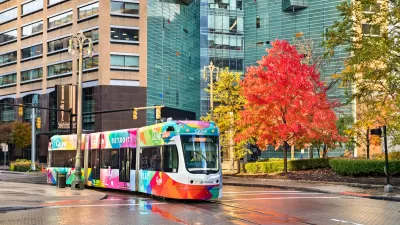
The Link Between Transit Access and Employment
Inadequate access to transportation hinders many Americans’ access to job opportunities.
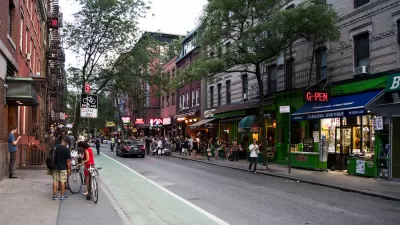
Urban Villages for the Proletariat
Compact, walkable urban villages benefit working families and organized labor by creating jobs, improving household affordability, reducing commute duration, improving economic opportunities, and creating cleaner, healthier communities.
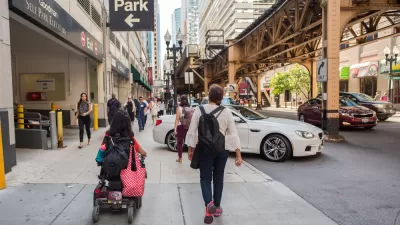
Better Access to Urban Opportunities
A major new Coalition for Urban Transitions guide offers specific recommendations for COVID-19 recovery, climate emergency response, and poverty reduction through policies that make cities more accessible, sustainable, and inclusive.

The California Dream is Becoming Less Achievable
Anti-growth forces have made it close to impossible for many young people and newcomers to gain the upward mobility that has defined the state's success.
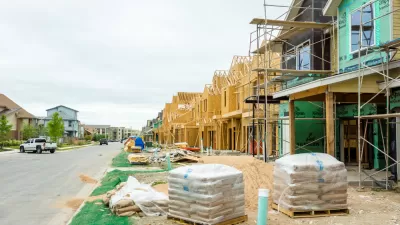
The Housing Affordability Recipe
Smart policies can ensure that low- and moderate-income households can find suitable housing in good neighborhoods where transportation costs are low. The research is clear: upzoning works.
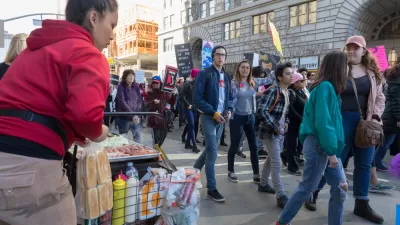
The Right to the City: Planners’ Role in Creating Affordable and Inclusive Communities
In a modern, post-industrial society, economic opportunity depends on disadvantaged households’ ability to find suitable housing in an economically successful city. Planners can make that happen.

The Suburbs, Reimagined
Eight experts produce a "manifesto for a new suburbia."

A Comprehensive Survey of the Scope and Effects of Land Use Policy in California
A survey of land use policies in cities and counties of California is designed to inform a more complete understanding of the housing market, sustainability, and economic mobility in the state.
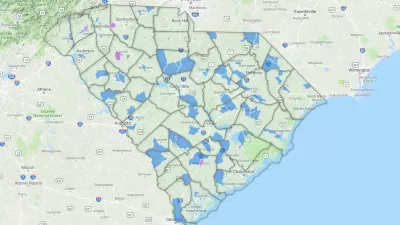
District By District, Maps Trace Neighborhood Opportunity Across the U.S.
Down to the level of individual census tracts, a team of researchers has developed national maps showing where upward mobility is probable, and where it isn't.
Smart Transport Policies for Global Sustainable Development Goals
Transport policy reforms help achieve many Sustainable Development Goals, including poverty reduction; access to healthcare, education, employment, and clean water; gender equality; better settlements; energy conservation; and emission reductions.

Communities Debate Potential Mine Near Mt. St. Helens
Fishermen, former loggers, and conservationists are just some of the groups with a stake in whether a mining operation takes root in Washington state.

Multimodal Transportation for Economic Freedom, Opportunity, and Security
Motor vehicles are expensive to own and operate. Many lower-income households spend more on transportation than they can afford due to a lack of affordable mobility options. The solution is more multimodal planning.

Gentrification, for Better and Worse
Gentrification—more wealthy people moving into lower-income communities—often faces opposition, sometimes for the wrong reasons. It is important to consider all benefits and costs when formulating urban development policies.

Unaffordability is a Problem but Sprawl is a Terrible Solution
Many households spend more than they can afford on housing and transportation, but the latest International Housing Affordability Survey is wrong to recommend sprawl as the best solution. Real solutions must reduce both housing and transport costs.
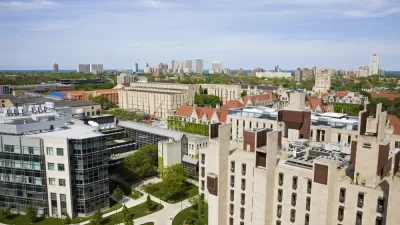
Chicago Universities Commit to Bolstering Growth
Eight Chicago universities have agreed to engage with the city and local communities as they invest in their neighborhoods. The hope is to increase opportunities for employment and economic growth.

Does Wendell Cox Realize He Just Supported Smart Growth?
Smart Growth critic Wendell Cox recently endorsed White House Economic Advisor Jason Furman's criticisms of zoning codes that limit infill development, essentially endorsing Smart Growth policy reforms.
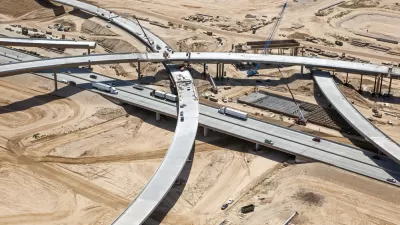
Smart Planning for Economic Opportunity
The Center for Opportunity Urbanism has a wonderful goal—to improve economic opportunities for working class households—but uses terrible research to reach confusing recommendations about which policies are best. Please do better!

Report: Which American Cities Are the Most Unequal
According to Brookings, this research is intended to inform local debates over the minimum wage. Drawing on Census data, the report finds that astronomical income gains are still concentrated among the biggest cities.

The Neighborhood Effect: How Place Impacts Upward Mobility
A new blog post from Jonathan Rothwell discusses the impact of neighborhoods on upward mobility.
Cars Still Essential for Economic Opportunity
Recent data shows that workers need cars to access jobs and economic opportunity. What can planners do to expand access to jobs via other alternative modes of transportation?
Pagination
Urban Design for Planners 1: Software Tools
This six-course series explores essential urban design concepts using open source software and equips planners with the tools they need to participate fully in the urban design process.
Planning for Universal Design
Learn the tools for implementing Universal Design in planning regulations.
Heyer Gruel & Associates PA
JM Goldson LLC
Custer County Colorado
City of Camden Redevelopment Agency
City of Astoria
Transportation Research & Education Center (TREC) at Portland State University
Jefferson Parish Government
Camden Redevelopment Agency
City of Claremont


































